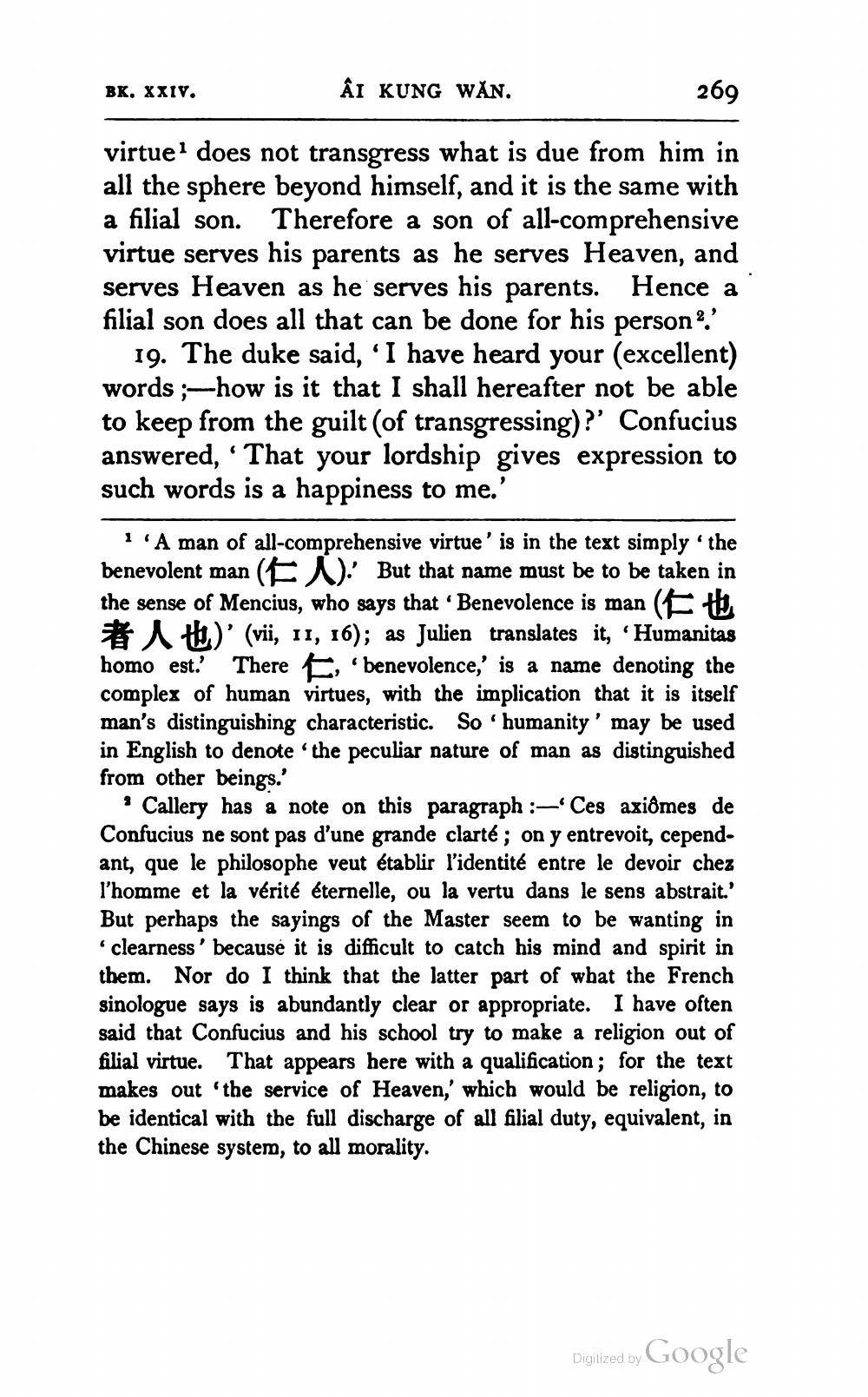________________
ÂI KUNG WAN.
269
virtue' does not transgress what is due from him in all the sphere beyond himself, and it is the same with a filial son. Therefore a son of all-comprehensive virtue serves his parents as he serves Heaven, and serves Heaven as he serves his parents. Hence a filial son does all that can be done for his person'.'
BK. XXIV.
19. The duke said, 'I have heard your (excellent) words;-how is it that I shall hereafter not be able to keep from the guilt (of transgressing)?' Confucius answered, 'That your lordship gives expression to such words is a happiness to me.'
1 'A man of all-comprehensive virtue' is in the text simply 'the benevolent man (EA). But that name must be to be taken in the sense of Mencius, who says that 'Benevolence is man (仁也 )' (vii, 11, 16); as Julien translates it, 'Humanitas homo est.' There'benevolence,' is a name denoting the complex of human virtues, with the implication that it is itself man's distinguishing characteristic. So 'humanity' may be used in English to denote 'the peculiar nature of man as distinguished from other beings.'
2
Callery has a note on this paragraph: :-'Ces axiômes de Confucius ne sont pas d'une grande clarté; on y entrevoit, cependant, que le philosophe veut établir l'identité entre le devoir chez l'homme et la vérité éternelle, ou la vertu dans le sens abstrait.' But perhaps the sayings of the Master seem to be wanting in 'clearness' because it is difficult to catch his mind and spirit in them. Nor do I think that the latter part of what the French sinologue says is abundantly clear or appropriate. I have often said that Confucius and his school try to make a religion out of filial virtue. That appears here with a qualification; for the text makes out 'the service of Heaven,' which would be religion, to be identical with the full discharge of all filial duty, equivalent, in the Chinese system, to all morality.
Digitized by
Google




